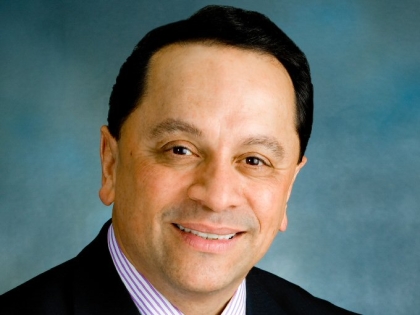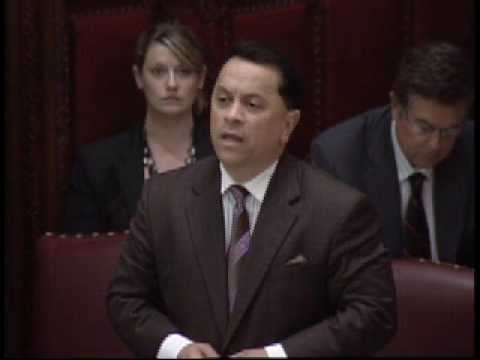
State Senate Delegation Lobbies Capitol Hill; Espada Proposes: • Federalization of 20,000 NYCHA Operated Apartments • Half-Billion Dollar Allocation in Economic Stimulus Plan for Affordable Housing Initiative in New York
Bronx State Senator Pedro Espada, who serves as Senate Vice President for Urban Policy and Planning and Chairman of the Housing Committee, today outlined a plan that he proposed yesterday to the Obama Administration and congressional leaders on Capitol Hill that calls for:
• the federalization of 20,000 New York City Housing Authority operated apartment units, and
• a half-billion dollar infusion for New York in the congressional stimulus package that would be earmarked for affordable housing in parts of the state where it is needed most.
The State delegation, which included Senate Majority Leader Malcolm Smith, spent Thursday lobbying on Capitol Hill for stimulus funds for New York.
"Affordable housing is a core of economic growth. It stimulates economic development, good wage-paying jobs and tax revenue," Espada said in pitching his proposal on Capitol Hill yesterday.
"An affordable housing initiative must be part of Washington’s economic stimulus package. It will address a number of needs. It would create much-needed affordable housing for the poor and working class in New York, especially in the outer boroughs of New York City. It would keep people off unemployment and public assistance lines by creating jobs and economic development projects that would generate new taxes into the revenue stream," Espada explained.
"This is how we climb out of the economic crisis," he added.
Espada proposed a $500 million allocation for New York as part of the stimulus plan that would be used to rehabilitate existing rental housing stock and build new affordable housing.
Although the legislature restored NYCHA's $3 million in operational subsidy in the 2008/09 budget, Espada cautioned that the State’s economic crisis could impact whether the agency receives the subsidy in the 2009/10 budget for the 20,000 apartment units it operates. NYCHA needs the subsidy to maintain and repair its aging physical plants.
Since NYCHA’s other 150,000 apartment units are already under the aegis of the Federal government, Espada proposed the immediate federalization of the 20,000 NYCHA operated units.
"With a $300-500 million allocation in the stimulus package for improvements to public housing, it is crystal clear why these 20,000 apartments currently operated by NYCHA should be federalized as soon as possible. It would guarantee that they, like the 150,000 units, receive funding for modernization such as elevator and boiler replacement. This is aging housing stock that requires attention," Espada said.
"The State is facing even worse financial problems as we work toward a 2009/2010 budget. We cannot risk short-changing the City’s public housing system, which already is operating at a deficit. It makes perfect sense to add the 20,000 units to the Federal government’s care," he continued.
"The New York City Housing Authority is still the cradle of housing for the poor and working class in boroughs like the Bronx and Brooklyn. This was true 75 years ago and it holds true today," Espada said.

